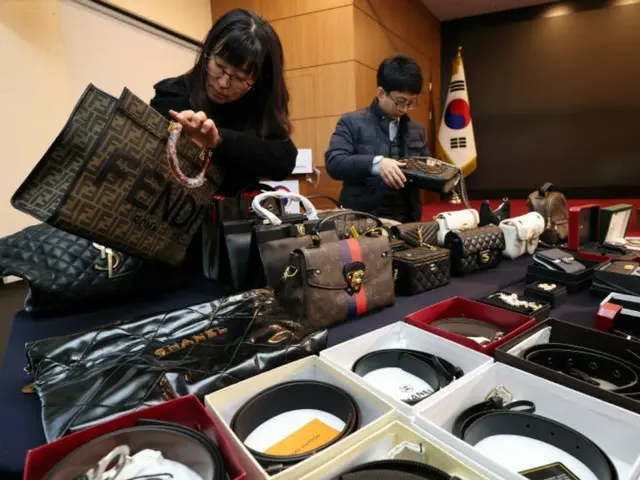According to the Customs Service on the 17th, the number of e-commerce goods shipped from China last year was 88,815,000, an increase of 70.3% from the previous year (52,154,000). Direct purchasing scale from China
has steadily increased from 27,483,000 in 2020 to 43,954,000 in 2021 and 52,154,000 in 2022.
Last year, 131,443,000 e-commerce goods were cleared through customs, an increase of 36.7%. Overall overseas direct purchases increased
This means that the scale has increased more rapidly than the current scale. The proportion of Chinese products in all direct purchases continues to increase, reaching 43% in 2020, 50% in 2021, and 54% in 2022, reaching 68% last year.
In terms of amount, the amount of direct purchases from China last year was $2,359 million (approximately 351,999,510,000 yen), an increase of 58.5% from the previous year (221,780,440,000 yen). synchronization
Overseas direct purchases increased from $4.725 billion to $5.278 billion, an increase of 11.7%.
The proportion of overall overseas direct purchases has increased from 31% to 45%, and last year the US (
($1,453 million) to become the number one direct purchasing country. Chinese online platforms such as AliExpress and Temu are attacking the domestic market by promoting ultra-low-priced products.
This appears to have led to rapid growth in direct purchasing from China. Direct purchasing from China is rapidly increasing, and the number of so-called "counterfeits" made in China that infringe on intellectual property rights is also increasing. Last year, it was arrested by the Customs Service.
The number of domestically produced goods infringing on intellectual property rights (according to special delivery list standards) was 65,000, an increase of 8.3% from the previous year (60,000). A total of 68,000 items infringing on intellectual property rights were intercepted at the border.
Of these, 96% of the cases (65,000 cases) came from China, which means that the majority of "counterfeits" were made in China. Direct purchasing from China is rapidly increasing, but the reality is that there is a shortage of human resources.
Last year, the number of e-commerce goods cleared at Pyeongtaek Customs was 39,752,000. An average of 128,000 cases per day based on a customs officer's working day (310 days). Pyeongtaek Customs
All the goods that go through customs are from China, but there are only 34 customs officials in charge of special consignment clearance. Standard working day (310 days) One employee must process approximately 3,800 cases per day.
There will be no such thing. If the number of staff members is limited to X-ray specialists, the number of cases that each staff member must handle increases further. A shortage of human resources leads to consumer harm. Both members of the Democratic Party of Japan belong to the National Diet Planning and Finance Committee.
According to documents that Rep. Ng Kyung-sook received from the Korea Consumer Affairs Agency, the number of complaints related to AliExpress last year was 673, three times the number in 2022 (228).
From the beginning of this year until last month, there were 352 complaints related to AliExpress, and 17 complaints related to Temu during the same period, which exceeded the annual number of complaints last year (7).
It turned.
2024/03/17 14:18 KST
Copyrights(C) Edaily wowkorea.jp 91

